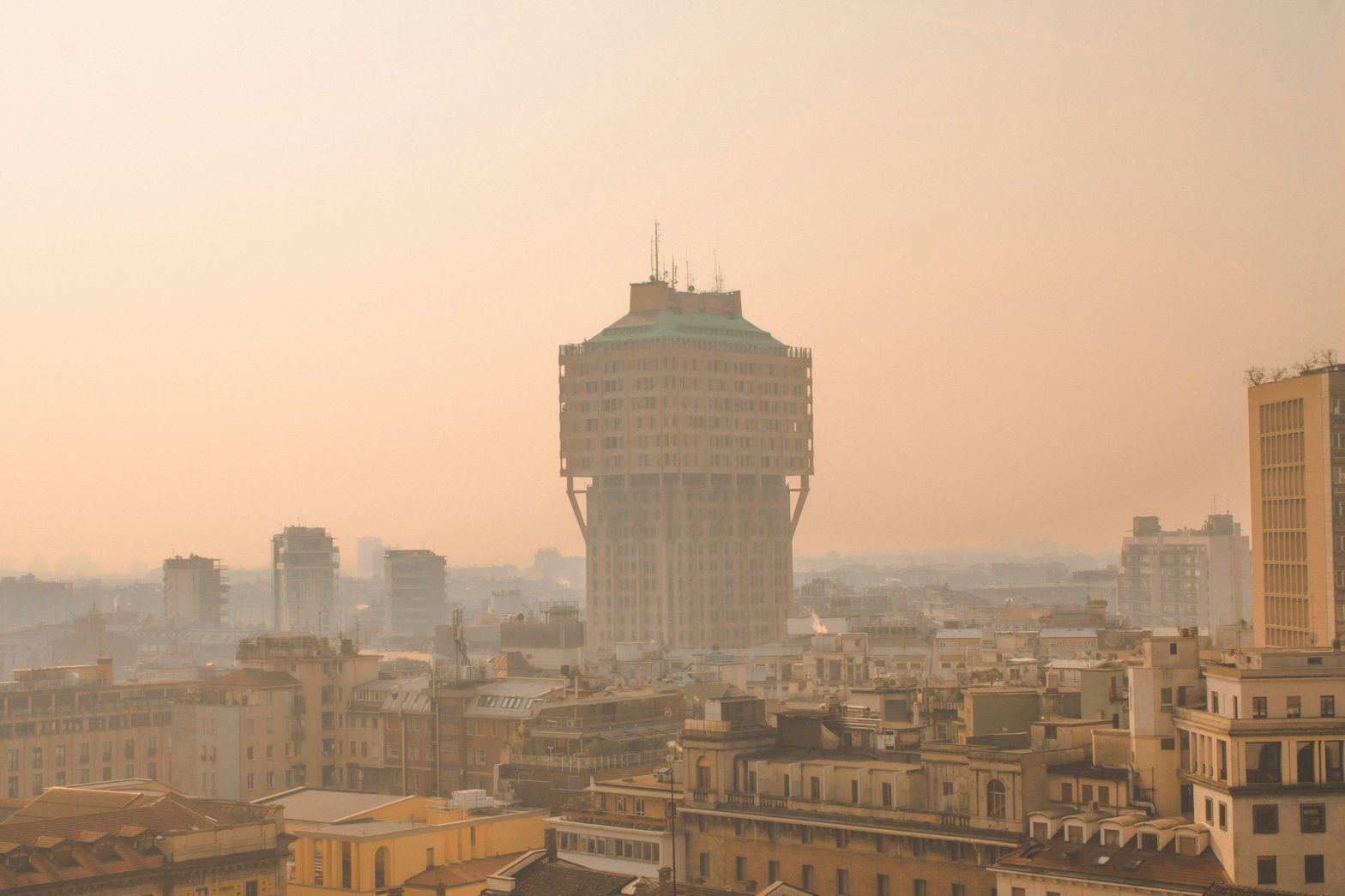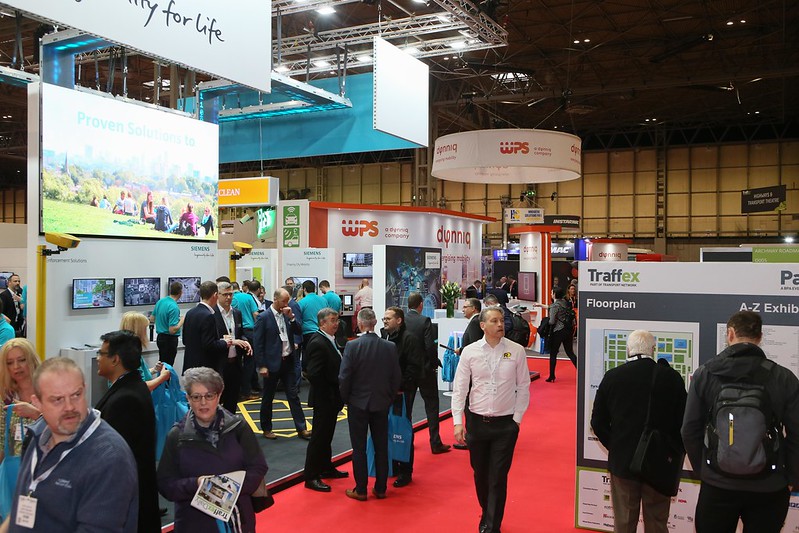
Photo: 32635651277_6298ecc2d7_c
Health fears dominate UK cities’ transport plans
11 April 2019
by Christopher Carey
The link between health and transport was a common theme at the Traffex 2019 conference, with city representatives outlining their plans for the future. Cities Today caught up with three UK cities speaking at the event.
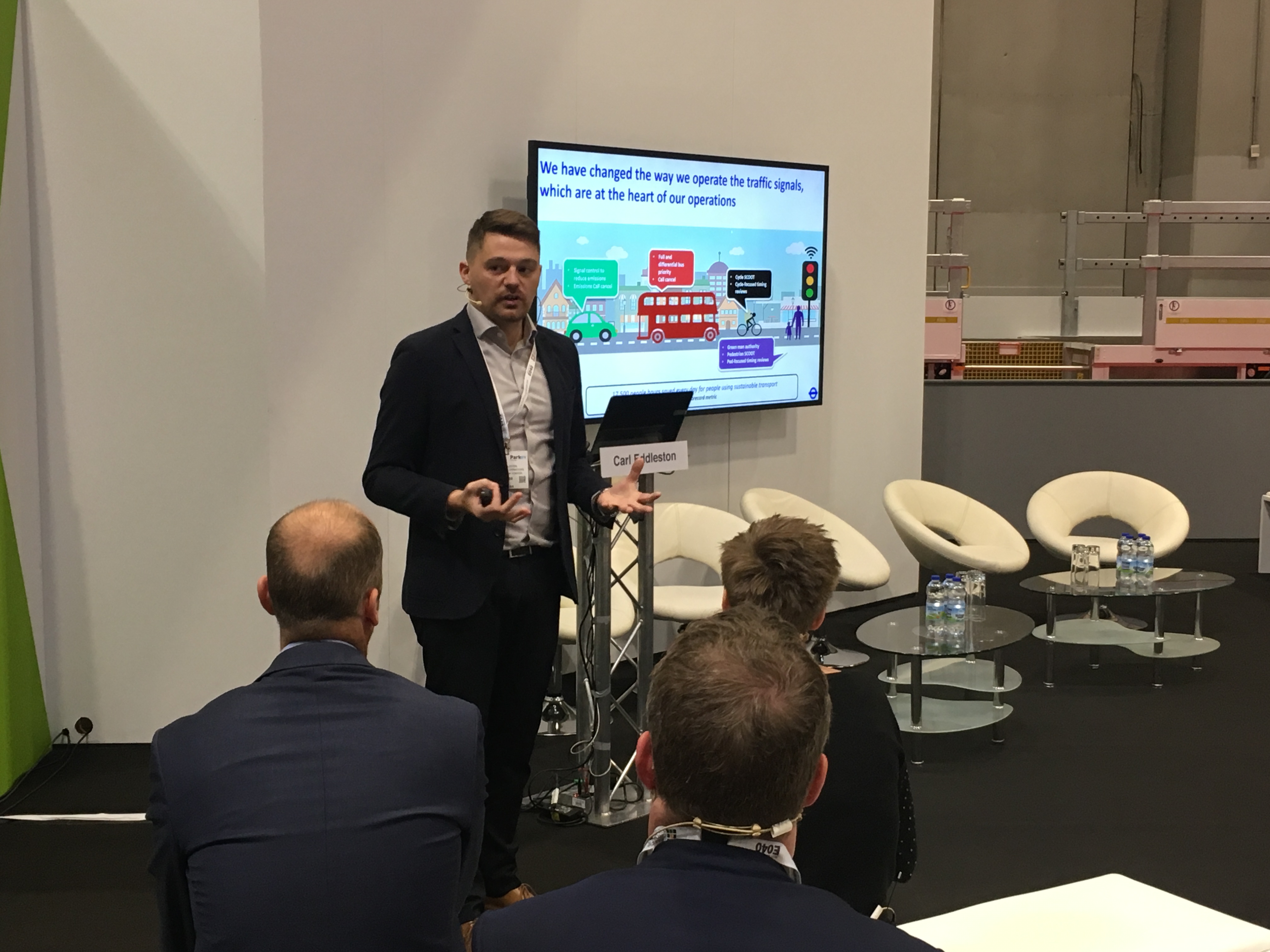
London talks healthy streets
Carl Eddleston, Head of Assest Operations at Transport for London (TfL ) set out the mayor’s strategy to transform London’s streets while improving the health of Londoners.
“We’ve got a huge amount of assets out there, [and] having all of this under one authority provides a great opportunity to do something different,” said Eddleston.
‘Healthy Streets‘ aims to make walking, cycling and public transport form 80 percent of all journeys made in London by 2041.
The ambitious plan will not only focus on traffic management but also incorporate broader urban design, and safety/security themes into the policy delivery process.
London’s new ultra low emission zone (ULEZ) came into effect on 8 April, charging users £12.50 (in addition to the current £11.50 congestion charge) for non complaint vehicles.
It’s the latest push by the city to reduce high nitrogen oxide emissions, which according to the mayor, Sadiq Khan, contributes to thousands of premature deaths each year.
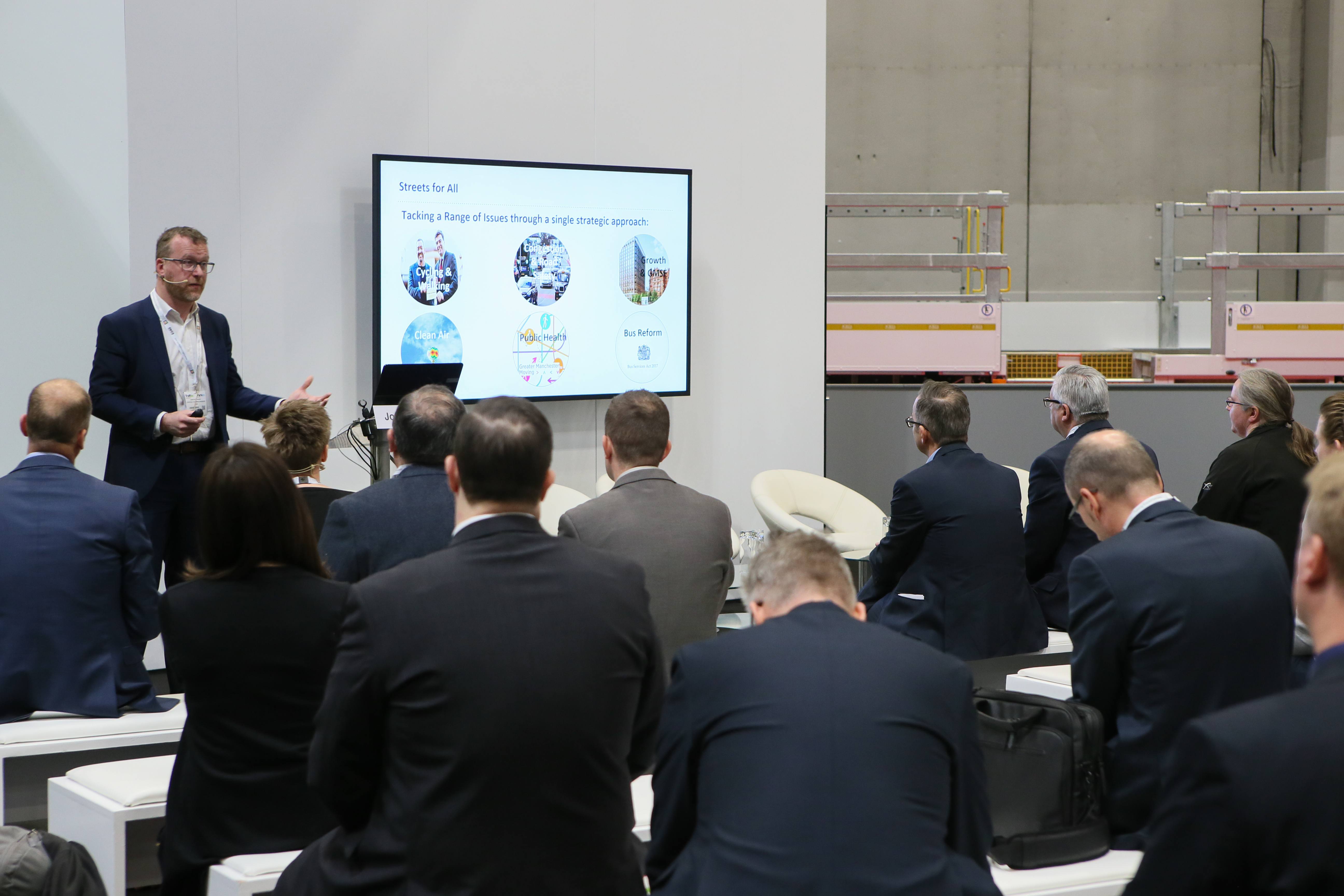
Manchester’s strategic shift
Jonathan Marsh, Strategic Planning Manager at Transport for Greater Manchester discussed the city’s 2040 Transport Strategy which aims to make walking, cycling and public transport form 50 percent of all journeys by 2040.
Published in 2017, the local transport plan follows a similar theme to London, putting a social emphasis on the planning process with its ‘Streets for All’ campaign.
“We took a new approach, this plan is more thematic, more about people, places and integrating our approach,” said Marsh. “Recently we published our delivery plan, which brings together our work around spatial framework and our transport plan. We’ve done a lot of work after the feedback we had [received] on the original plan, which basically told us that we needed to do a better job.”
After London, Manchester is the most congested city in the UK, and has the highest pollution levels of any major UK city, according to the World Health Organisation (WHO).
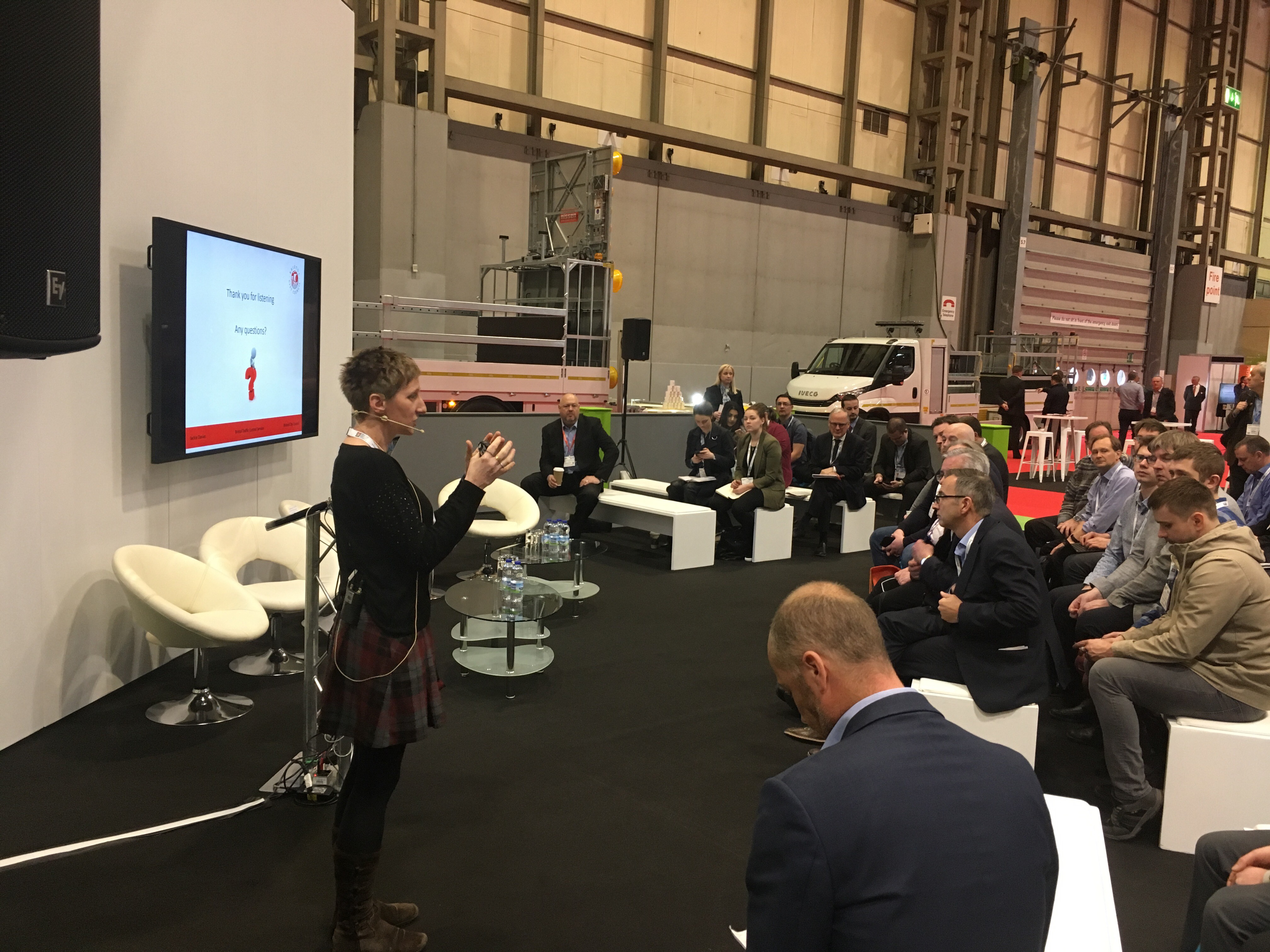
Bristol’s operations centralised
Jackie Davies, Principal Urban Traffic Management and Control (UTMC) Engineer at Bristol City Council discussed how the city is shifting patterns in urban transport delivery, and how a new operations centre has made services more effective.
“In Bristol we have quite a unique situation, all of the bus radio operators, people who direct buses away from disruptions, are based in the room with us [Bristol City Council], so that gives us another 400 pairs of eyes on the street, looking at issues and telling us where there are problems,” she said.
“We’re then able to step in and do something about it immediately. This relationship has developed over many years, and it’s been really beneficial to us.”
The new operations centre opened in 2017, and brought together the council’s Emergency Control Centre, Traffic Control Centre and Community Safety (CCTV) Control Rooms.




